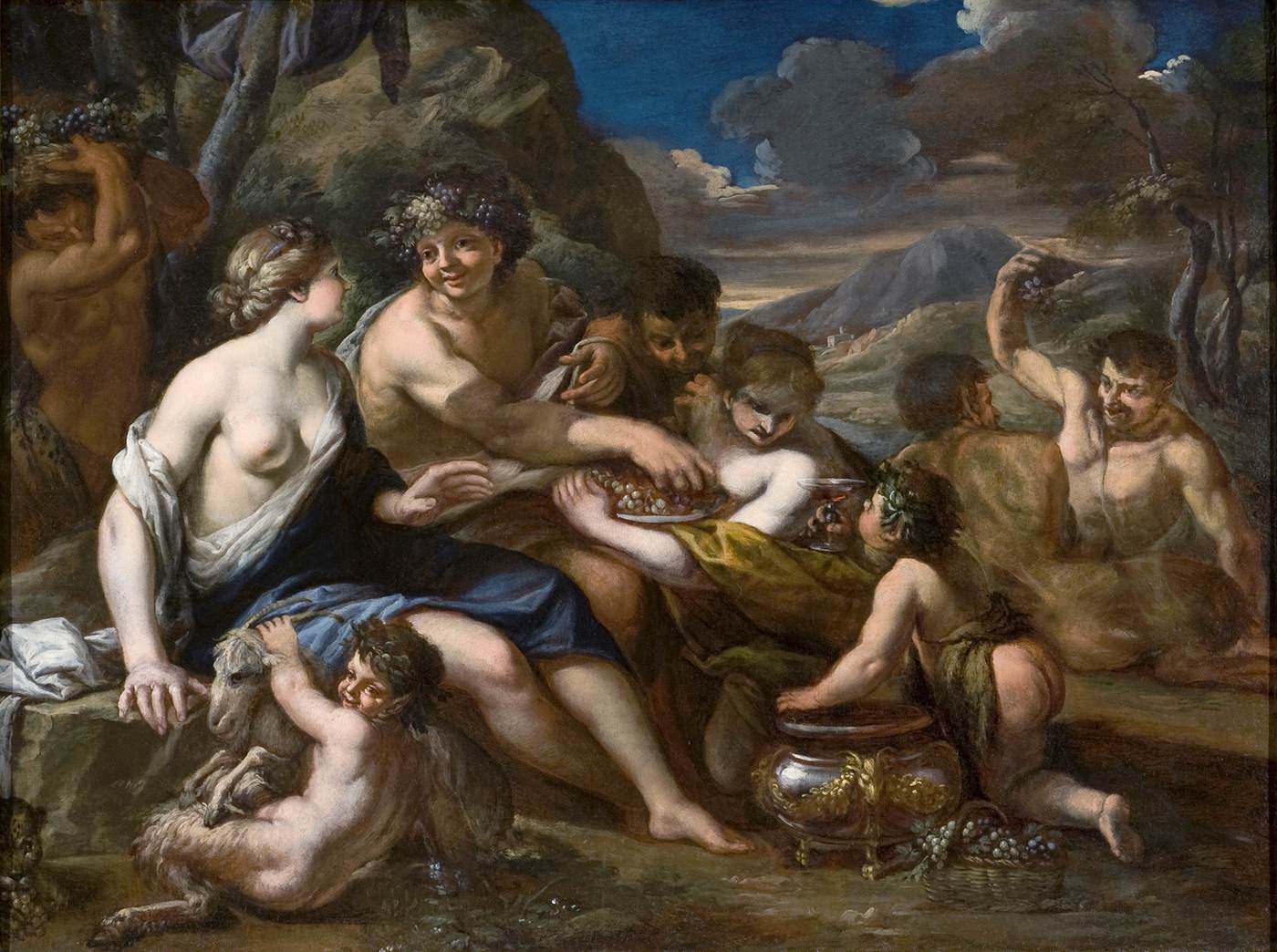Description
The painting Bacchanalia by Alessandro Rosi is a masterpiece of Italian Baroque art from the 17th century. The work, with an original size of 67 x 90 cm, represents a scene from Roman mythology in which Bacchus, the god of wine, and his followers celebrate a festival in honor of their deity. The work is an exaltation of sensuality and hedonism, and shows the characters in different states of drunkenness and debauchery.
The artistic style of the painting is typical of the Italian Baroque, with great attention to detail and exquisite technique in the use of light and shadow to create a sense of depth and movement in the scene. The composition is dynamic and balanced, with a large number of characters arranged in different planes and perspectives to create an effect of depth and three-dimensionality.
Color is another of the highlights of the work, with a rich and vibrant palette that reflects the joy and exuberance of the scene. Red and gold tones predominate in the work, creating a feeling of warmth and passion that perfectly matches the theme of the painting.
The history of the painting is interesting, as it was commissioned by an Italian nobleman to decorate his palace in Rome. The work was highly regarded in its time and became a model for other artists who were inspired by its style and subject matter.
Little-known aspects of the work include hidden details in the composition, such as the presence of small figures hidden in the corners of the painting, which add a touch of mystery and curiosity to the work. In addition, it is believed that the central figure of the work, the god Bacchus, was inspired by the artist himself, who portrayed himself in the painting.
In short, Alessandro Rosi's painting Bacchanalia is a masterpiece of Italian Baroque art that stands out for its artistic style, composition, color, and subject matter. Its history and little-known details add a touch of interest and curiosity to the work, which remains one of the most appreciated in Italian art.

